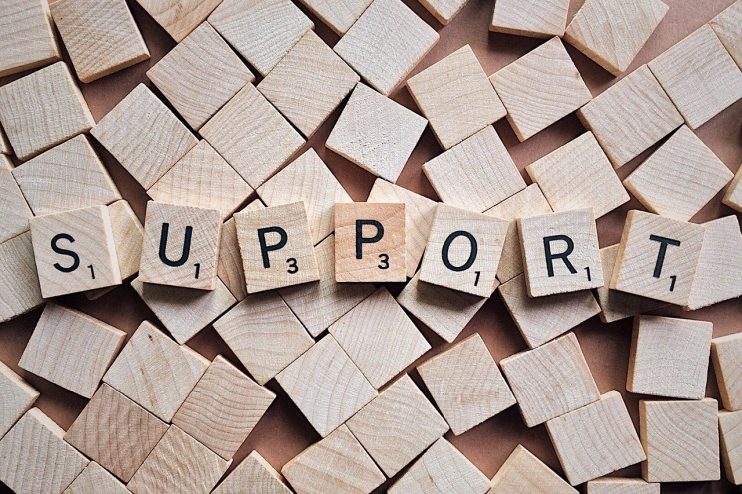Here is our next update on financial help available from the Government during the time of coronavirus.
The following is our understanding of the various schemes available, based on the information published to date. It should not be relied on for advice at this stage but is intended to give an indication of how they will work. As you will be aware, the policies have emerged rapidly under the current circumstances and therefore the detail of how they will be applied and how they will work in practice is still emerging. We will be keeping abreast of all new announcements and will pass these on to you as soon as we can. We hope to provide some of the answers to many of our clients’ questions here. Please note that this is a generic email and we have decided to provide all the information available to all clients, so please feel free to ignore that which does not apply to your precise situation.
Can I claim under the Self-Employed Income Support Scheme (SEISS)?
This scheme is available to those who are registered as self-employed with HMRC, which will be those people who have contracts and invoice for their work in their own name. It does not apply to those who contract and work via a personal service company.
To claim, you must have filed a tax return for 2018/19 (or you have until 26 April to file it) and the self- employed income must be more than half of your total income. If your annual average trading profit exceeds £50,000 you will not be eligible for the scheme.
Note that the HMRC SEISS guidance states, “If you’re a director of your own company and paid through PAYE, you may be able to get support using the Job Retention Scheme”.
Can a director of an owner managed company claim under the Coronavirus Job Retention Scheme (CJRS)?
There has been a lot of uncertainty about whether directors can claim under this scheme and the CJRS guidance does not specifically state that directors can. However, the promising news is that an interview carried out by the CBI on 27 March with Ben Kerry from HMRC confirmed that being a director or manager of a company does not disqualify them from the scheme. Company directors can continue to complete their statutory duties while furloughed such as filing the accounts, although this is the only work allowed to be done. The ICAEW also supports the view that a director can claim under the scheme provided they have been paid salary under PAYE. Accounting Web recently issued an interesting article which can be found here.
Full details of the scheme can be found here.
In view of the above, there are some important points to note:
- The CJRS is only eligible for employees who started a PAYE payroll scheme before or on 28 February 2020. The PAYE reference number is one of the key details that will be needed when the application is made. All our clients who have been paying themselves salary will be registered. If you were registered the PAYE reference will be quoted here [ ]. If it is not included here but you paid yourself salary within the last year, please contact us immediately.
- The scheme covers salary paid to yourself and not dividend income.
- The grant will cover the lower of 80% of an employee’s regular wage or £2,500 per month, plus the associated Employer National Insurance contributions.
- If your monthly salary varies (which will generally be the case), you can claim the higher of either:
- the same month’s earning from the previous year; OR
- the average monthly earnings from the 2019-20 tax year
- If you did not pay yourself any salary in March 2019 or in 2019/20 it is unclear whether you would be able to claim. We are awaiting confirmation on this.
- It is not yet known whether the scheme will include deemed employees under the Off Payroll Working rules, such as where you have continued to work via your company but fall under the Public Sector Off Payroll Working with tax and national insurance deducted at source.
- You must not work for the company whilst furloughed. If you obtain a short contract of work it should be possible to halt the furlough and then re-commence it once you have finished the work, but you would need to notify us first. The minimum period of furloughing is 3 weeks.
- Volunteer work or training may be carried out during the furlough period, as long as it does not provide services to or generate revenue for, or on behalf of, your company. Work for other employers and work on a self-employed basis may still be carried out.
- HMRC are building a portal through which the company, as your employer, will apply for the grant. The portal is expected to be ready mid to late April.
- Salary of an amount at least equivalent to the grant you are applying for will need to be paid to yourself. It is unclear at present whether this will need to be paid in advance of obtaining the grant.
- The grant will be included as income in the company against which the salary paid to you will be offset. Salary paid will be subject to tax and national insurance in the normal way.
- The scheme will cover the cost of salary from 1 March 2020 for a period of 3 months, but the Government will review the situation in May and may decide to extend it further.
Next steps for our clients
A formal process to record the date of furlough will be required. In addition, an assessment of the grant available to you should be made. The salary paid to you will need to be at least equivalent to the grant available. We are waiting to find out if it will be possible for Competex to make the claim for the grant on our clients’ behalf as their agent.
Competex are working on producing a document to record what is necessary and to calculate the grant available. We will update clients with progress on this as soon as we can.
Can I get a loan?
The Business Interruption Loan Scheme is open to all small businesses trading in the UK including the self -employed. It offers loans, overdrafts, invoice finance and asset finance of up to £5 million for up to six years. The Government will cover the first 12 months of interest and fees on the loan. The scheme is now open for applications and is offered by over 40 accredited banks. The government will provide lenders with a guarantee of 80% on each loan to give lenders confidence in providing the finance.
In reality, we believe that many banks are asking for a personal guarantee, which is rather controversial given the uncertain nature of things right now. However, Royal Bank of Scotland, which also owns NatWest, has confirmed it will offer business interruption loans without asking business owners for personal guarantees, proving that more generous terms are available. See BBC article here.
Further information on the scheme can be found here:
- https://www.businesssupport.gov.uk/coronavirus-business-interruption-loan-scheme/
- https://www.british-business-bank.co.uk/ourpartners/coronavirus-business-interruption-loan-scheme-cbils-2/current-accredited-lenders-and-partners/
Universal Credit
You may be able to claim Universal Credit if your household has savings of less than £16,000. If you or your partner have combined savings of between £6,000 and £16,000, then Universal Credit will be reduced. The rates are being increased by £20 per week from Monday 6 April 2020 for one year.
The new rates will be as follows:
- Single and under 25 – £342.72
- Single and 25 or over – £409.89
- A couple and you’re both under 25 – £488.59 (for you both)
- A couple and either of you are 25 or over – £594.04 (for you both)
For further information on Universal Credit, please see this article on the Government website.
Statutory Sick Pay (SSP)
The weekly allowance for SSP will increase from £94.25 to £95.85 on 6 April 2020. Small businesses are entitled to reclaim the costs of Statutory Sick Pay (SSP) for sickness absence due to COVID-19. This refund will cover up to two weeks’ SSP per eligible employee who are either ill or been told to self-isolate because of COVID-19. The government is working with employers over the coming months to set up the new repayment mechanism.
To qualify for Statutory Sick Pay (SSP) you must:
- be classed as an employee and have done some work for your employer
- earn an average of at least £118 per week
- have been ill for at least 4 days in a row (including non-working days)
Note that the £118 per week must have been earned/paid to you as salary in the 8-week period prior to day 1 of sickness. This is called the relevant period. HMRC guidance states that the payment of director’s fees are regarded as earnings for the purpose of entitlement to SSP on the date payment was made.
You can not claim SSP at the same time you are on furlough.
We will publish further guidance on this as soon as possible, addressing the eligibility in more detail and whether the company can claim the refund.
Time to Pay
A reminder of the HMRC dedicated helpline 0800 0159 559 to support businesses and self-employed people concerned about not being able to pay their tax due to coronavirus. The helpline is open Monday to Friday 8am to 8pm, and Saturday 8am to 4pm. We urge you to contact HMRC before the payment deadline if you wish to discuss an arrangement to pay.
VAT due between 20 March and 30 June 2020 does not to be paid and may be deferred until 5 April 2021. VAT returns still need to be filed on time but if you would like to take advantage of the payment deferral you will need to cancel your direct debit via your bank.

